Kendall College School of Culinary Arts Adjunct Instructor Co-authors Book on Knife Techniques
James P. DeWan, an adjunct instructor at Kendall College School of Culinary Arts, has co-authored ZWILLING J.A. HENCKELS Complete Book of Knife Skills: The Essential Guide to Use, Techniques & Care (Robert Rose Inc., 2010, ISBN: 978-0-7788-0256-3). The book teaches mastery of knife techniques for both the novice and experienced chef and is the must-have cutlery reference book for anyone who loves to cook.
DeWan, chef and instructor, is also an award-winning food writer. His Chicago Tribune column, “Prep School,” is now in its fifth year. He joined Kendall College in 2008 and teaches introduction to professional cookery; introduction to stocks, sauces and soups; introduction to garde manger; methods of cooking; and culinary arts.
“Now more than ever, there is a return to cooking in the home. Yet most home cooks would agree that the one ingredient missing in their kitchen is basic knife skills,” said Renee Zonka, RD, CCE, CHE, managing director and associate dean of Kendall College’s School of Culinary Arts. “DeWan’s book is a welcome addition to everyone’s kitchen library, and reflects both his passion for culinary and the mastery of technique in cooking.”
Complete Book of Knife Skills provides valuable information about an essential kitchen tool used every day. The book covers everything about cutlery—from basic vegetable cuts to creative garnishes to boning meat and everything in-between. There is also a chapter that provides background information and photos on the types of knives available, how they are used and how to care for them.
DeWan co-wrote Complete Book of Knife Skills with Jeffrey Elliot, director of culinary relations for Zwilling J.A. Henckels, Demeyere and Staub and executive chef of Zwilling J.A. Henckels USA. Zwilling J.A. Henckels, based in Solingen, Germany, was founded in 1731 and today is one of the world’s leading manufacturers of premium cutlery, flatware, cookware, scissors and kitchen gadgets.

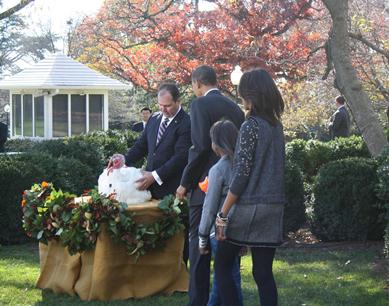 President Barack Obama on November 24 “pardoned” the National Thanksgiving Turkey in a White House Ceremony, as he and National Turkey Federation (NTF) Chairman Yubert Envia celebrated the 63rd anniversary of the National Thanksgiving Turkey presentation.
President Barack Obama on November 24 “pardoned” the National Thanksgiving Turkey in a White House Ceremony, as he and National Turkey Federation (NTF) Chairman Yubert Envia celebrated the 63rd anniversary of the National Thanksgiving Turkey presentation.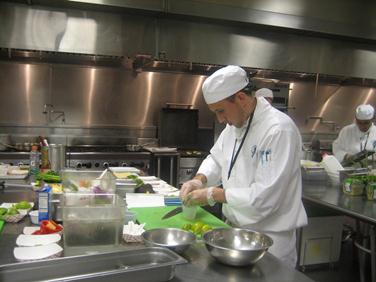 Students of Le Cordon Bleu College of Culinary Arts in Miami exhibited creativity and technical skills during the Hass Avocado Board student recipe competition, held in Miramar, Fla., on August 27. Ten students competed for cash awards with innovative and inspired recipe dishes featuring fresh Hass avocados.
Students of Le Cordon Bleu College of Culinary Arts in Miami exhibited creativity and technical skills during the Hass Avocado Board student recipe competition, held in Miramar, Fla., on August 27. Ten students competed for cash awards with innovative and inspired recipe dishes featuring fresh Hass avocados.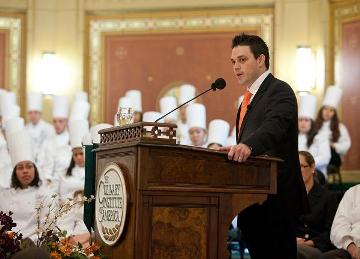 Thirty-one-year-old Gavin Kaysen, executive chef at the acclaimed Café Boulud in New York City, spoke to graduates at The Culinary Institute of America (CIA) about their need to be passionate in their career choice. Kaysen delivered the commencement address at the college on Friday, October 22.
Thirty-one-year-old Gavin Kaysen, executive chef at the acclaimed Café Boulud in New York City, spoke to graduates at The Culinary Institute of America (CIA) about their need to be passionate in their career choice. Kaysen delivered the commencement address at the college on Friday, October 22.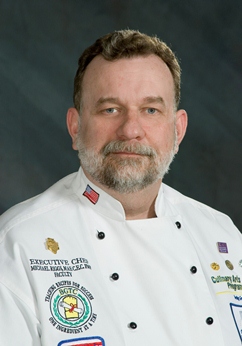 An educator returns from a summer excursion abroad with a new appreciation of community and culture communicated through food and cuisine.
An educator returns from a summer excursion abroad with a new appreciation of community and culture communicated through food and cuisine.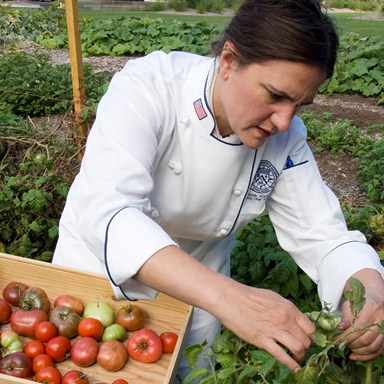 Korean tacos, Southern comfort and “frugality fatigue” are among the leading restaurant trends predicted by Technomic for next year.
Korean tacos, Southern comfort and “frugality fatigue” are among the leading restaurant trends predicted by Technomic for next year. Grant program honoring exemplary culinary training across the nation exposed food editors and other media to educators’ innovations on the plate during the 2010 IFEC Conference in New Orleans.
Grant program honoring exemplary culinary training across the nation exposed food editors and other media to educators’ innovations on the plate during the 2010 IFEC Conference in New Orleans.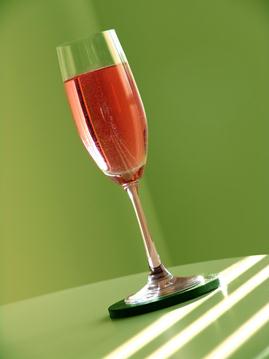 Having identified types of sparkling wines, here’s how to serve them.
Having identified types of sparkling wines, here’s how to serve them.